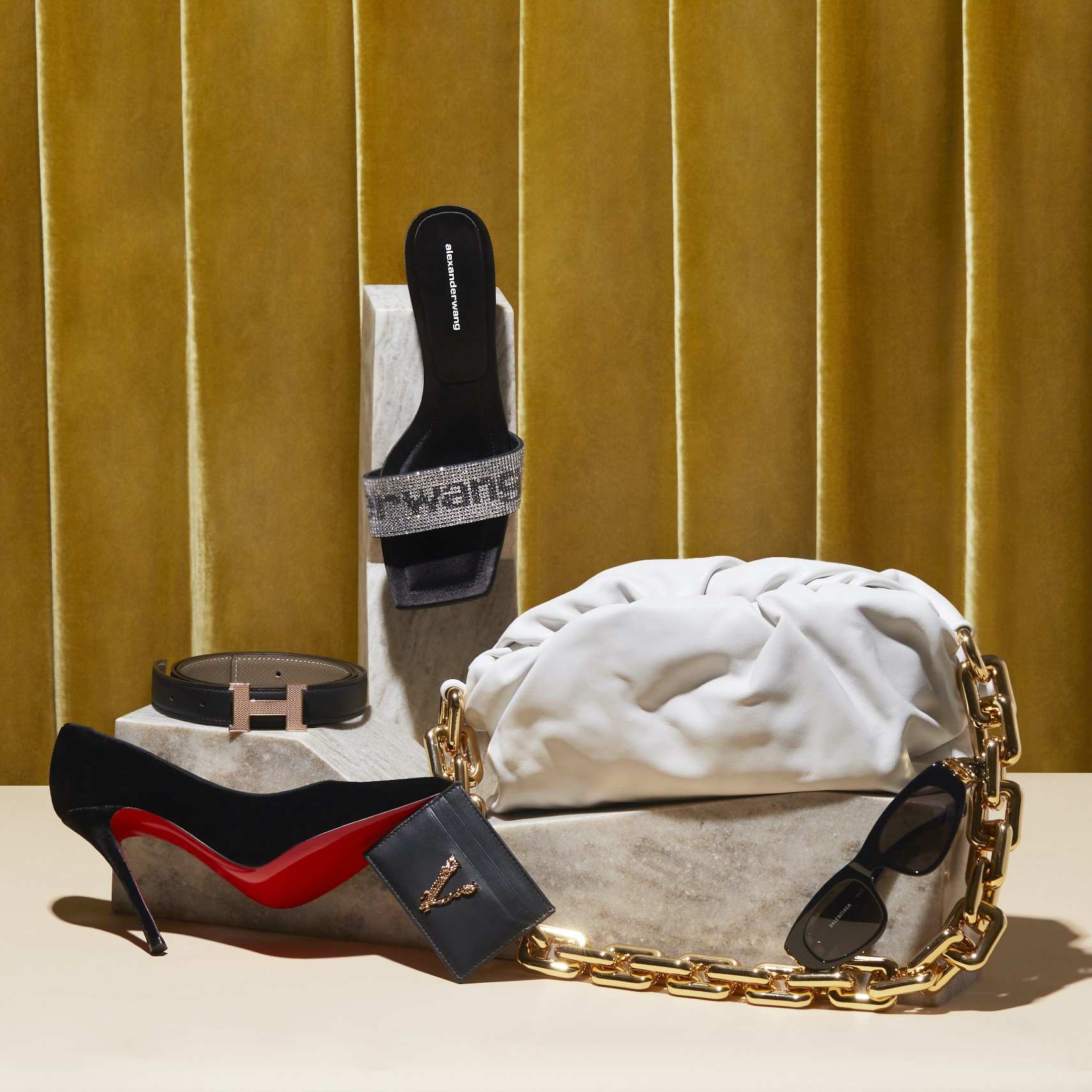How to Contact Past Job References
MarieClaire.com rounded up five experts to answer: What's the best way to get back in touch with job references?
Dear Cubicle Coach,
I'm job-hunting but haven't been great at keeping in touch with my references. Should I send an e-mail to let them know I'm listing them as references, even if I've used them before? I'm not even sure if they'll remember me!
You most definitely want to contact your references in advance. What if your reference has changed jobs, has a new phone number, or would prefer not to be contacted? Bad references can reflect poorly on you and lessen your odds of getting the job. So shoot your reference an e-mail and let them know what's up. If you are afraid they won't remember you, just refer to the dates you worked at the company and/or a memorable moment from your time with them. Tell your reference what job you are applying for and ask for their permission to use them as a reference. Odds are your reference will be more than willing to help you out, but better safe than jobless. —Stacy Lucier, marketing manager
Send an e-mail ASKING if it is okay to list them as references! In your note, remind them of your past connection and share what you've been doing since you were in touch. Tell them what type of jobs you are applying to do and attach your résumé. Ideally, you should list references you are sure will remember you! Think about other people you know who may be willing to support your candidacy. Going forward, be sure to ask for endorsements on LinkedIn, so your referees will have a reminder of what they liked about you if you ever need to request a new recommendation. —Miriam Salpeter, career coach, Keppie Careers
When using references, it's always a good idea to get back in touch with the ones you list for potential employers. The main reason is that you want your latest communication with them to be fresh in their minds in case they're called upon on your behalf. Listing a reference that may not remember you can be more detrimental, showing a lack of impressionable work ethic. —Brittany Thoms, principal at SeeSpark!Go
First, think about how you used to be in contact. Did you see this person at professional lunches? Or maybe this is a former coworker. Whatever the case, you should try and reconnect in a similar style to your previous meetings. Call your coworker, or attend a luncheon you know your contact will be at. If you are an e-mail person, send an actual e-mail — do not use a social networking site such as LinkedIn or Facebook to send a message. Ask how your colleague is doing: Does she have a new job? Promotion? Ask her about her career first. Mention your last meeting. Cement the connection by talking about the last time you saw her, and remark on something you did together. Once you've done this, you can either mention your job search, or ask for an in-person meeting, such as coffee or lunch, and ask for a referral there. And when you do ask for the referral, make sure you have something to offer in return, such as a client lead or relevant industry information that could be helpful. And of course remind your connection that you are available to give referrals for her. Remember to send a handwritten thank-you note to your colleague whether or not you get the job; she did you an important service, and you need to thank her properly. —Kate Hutchinson, MBA candidate
Recently, a former babysitter used me as a reference. She'd asked a while back if she could, and I agreed. However, it's been a few months since we last spoke. So when I received an early-morning phone call from a potential employer, I was caught completely off guard. Fortunately for her, I think on my feet and am very fond of her. However, it would have been much better if I had known I might receive the call before it happened. You should always give references a heads-up that they might be called. It's common courtesy, regardless of whether you've been using them as a reference for years. Also, it gives them a chance to think — if only for a minute — about what they might say. In the end, that can only be good for your recommendation. With regards to worrying if they will remember you — that is all the more reason to shoot over a quick e-mail. It's far better to remind them of who you are yourself than to have a potential employer have to try to remind them. Imagine what that potential employer would think if your reference said, "I am not sure I know who that is." Do you think that would score you the job? Probably not. Instead, a simple e-mail saying something like, "Dear so-and-so, Just wanted to let you know that you might be contacted by someone from (insert company) regarding a reference. Thanks so much for agreeing to be a reference for me. I am really excited about this position. It's (insert description of the position). Hope you are doing well! Best, (insert your name)." —Sarah Caron, writer for HRworld.com/blog
Stay In The Know
Get exclusive access to fashion and beauty trends, hot-off-the-press celebrity news, and more.
Do you want to help answer our readers' pressing career and money questions? E-mail us!
-
 The "Frightening" Easter Prank William Played on Eugenie
The "Frightening" Easter Prank William Played on Eugenie"Prince William has just stood on a chair and bitten the mouse's head off."
By Amy Mackelden
-
 A Resurfaced Photo Reveals Charlotte's Royal Lookalike
A Resurfaced Photo Reveals Charlotte's Royal Lookalike"The Spencer genes are so strong."
By Amy Mackelden
-
 Why Prince Andrew Attended Royal Family's Easter Service
Why Prince Andrew Attended Royal Family's Easter ServiceIt was previously alleged King Charles's "patience was wearing thin" with his brother.
By Amy Mackelden
-
 K-Beauty for Your Vulva? How Rael Applies South Korean Innovation to Intimate Care
K-Beauty for Your Vulva? How Rael Applies South Korean Innovation to Intimate CareThe Rael founders, who recently raised $35 million in venture funding, are disrupting the feminine hygiene care industry, including ending the male-dominated CPG industry’s push to make our vaginas \201csmell like flowers.\201d
By Emma Reynolds
-
 Behind the Scenes of a Women-Led Acquisition
Behind the Scenes of a Women-Led AcquisitionEver wonder what goes on during an M&A deal? Here, Tradesy founder Tracy DiNunzio reveals what it's like to say goodbye to the company she built as it merges with Vestiaire Collective.
By Tanya Benedicto Klich
-
 Peloton’s Selena Samuela on Turning Tragedy Into Strength
Peloton’s Selena Samuela on Turning Tragedy Into StrengthBefore becoming a powerhouse cycling instructor, Selena Samuela was an immigrant trying to adjust to new environments and new versions of herself.
By Emily Tisch Sussman
-
 Edible Arrangements: An Urban Forager on Eating From Your Own Backyard
Edible Arrangements: An Urban Forager on Eating From Your Own BackyardUrban Forager Alexis Nikole Nelson (@blackforager) on Eating From Your Own Backyard
By Sarah Z. Wexler
-
 This Mutual Fund Firm Is Helping to Create a More Sustainable Future
This Mutual Fund Firm Is Helping to Create a More Sustainable FutureAmy Domini and her firm, Domini Impact Investments LLC, are inspiring a greater and greener world—one investor at a time.
By Sponsored
-
 Power Players Build on Success
Power Players Build on Success"The New Normal" left some brands stronger than ever. We asked then what lies ahead.
By Maria Ricapito
-
 Don't Stress! You Can Get in Good Shape Money-wise
Don't Stress! You Can Get in Good Shape Money-wiseFeatures Yes, maybe you eat paleo and have mastered crow pose, but do you practice financial wellness?
By Sallie Krawcheck
-
 The Book Club Revolution
The Book Club RevolutionLots of women are voracious readers. Other women are capitalizing on that.
By Lily Herman